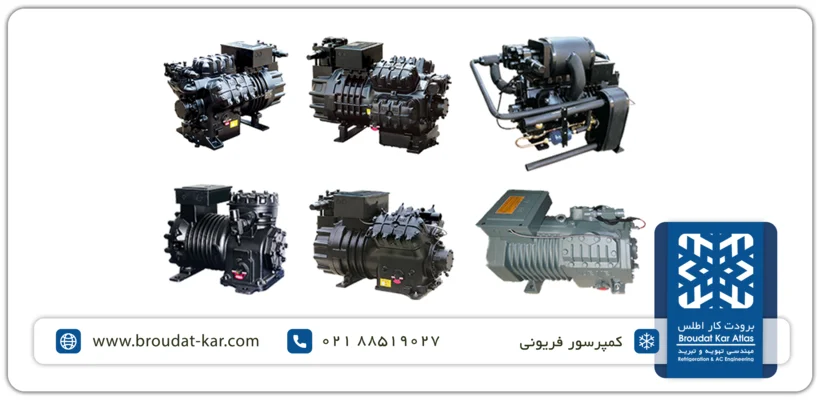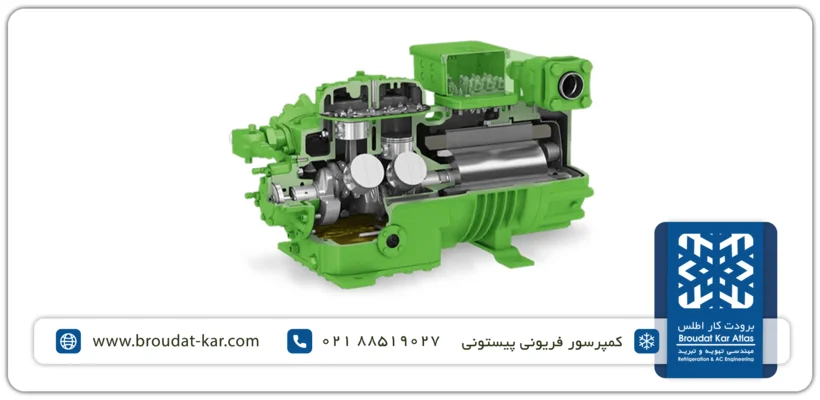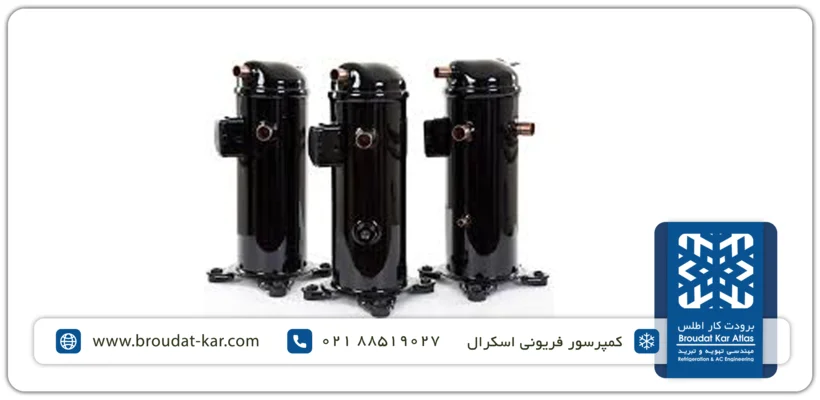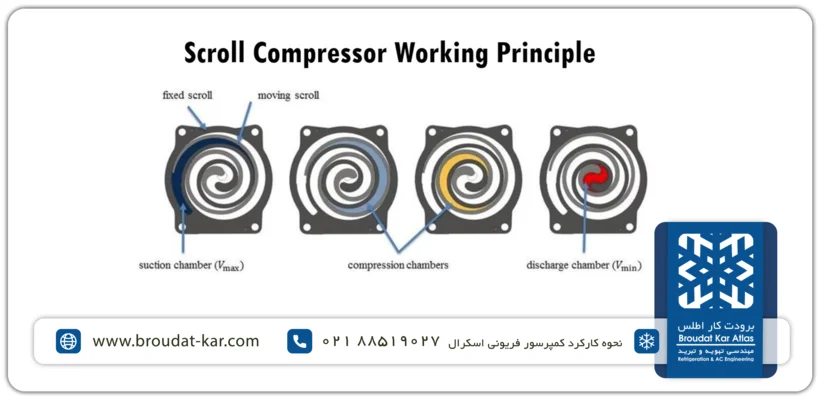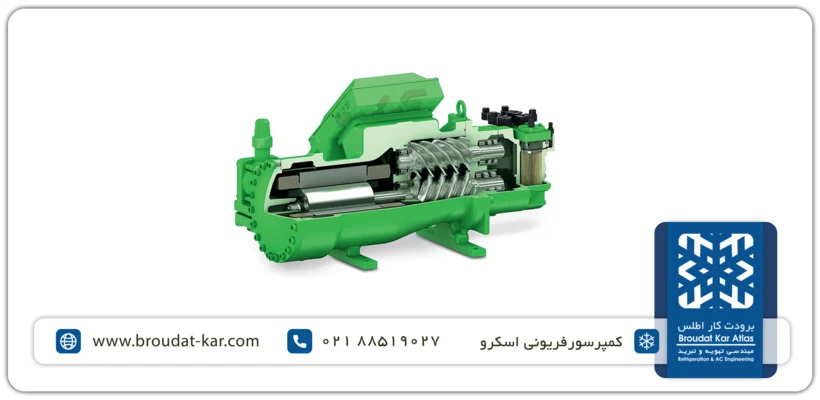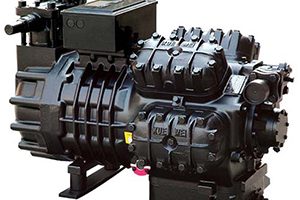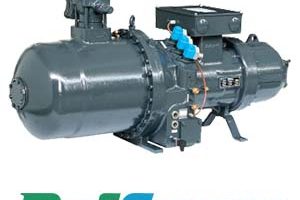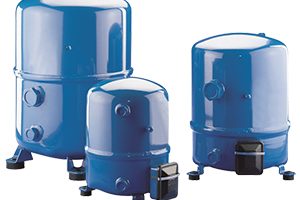Freon compressor
Freon compressors are crucial components in refrigeration systems utilizing CFC, HCFC, and HFC gases as refrigerant. These compressors work in tandem with specific types of freon gas, requiring compatible oils. Efficient cooling and temperature control in freon refrigeration systems hinge on the synchronized operation of various equipment, with the freon compressor playing a pivotal role.
In this comprehensive guide, we delve into the functions, types, and selection criteria of freon compressors. Responsible for compressing refrigerant gas, the freon compressor drives the circulation of refrigerant in the refrigeration cycle. Working alongside heat exchangers and control systems, it extracts heat from the target space and material, maintaining low temperatures essential for refrigeration.
By facilitating circulation and inducing phase changes in the refrigerant, the compressor significantly contributes to the refrigeration process’s effectiveness.
An Overview of Freon and Its Role in Refrigeration Systems
Freon, a renowned brand name, encompasses various synthetic refrigerants extensively utilized in refrigeration systems for their favorable thermodynamic properties and low toxicity. Examples include R11, R-12, R-22, R-134a, R-404a each with distinct thermodynamic attributes and environmental impacts.
Exploring Freon Compressor Varieties
Understanding the various types of Freon compressors is important for the effective design, installation, upkeep, and operation of refrigeration systems across diverse industries. Each compressor type offers distinct advantages and considerations tailored to specific refrigeration and air conditioning needs. In the following sections, we delve into the intricacies of Freon compressor types, elucidating their mechanisms, applications, and suitability for a range of refrigeration and HVAC scenarios.
Reciprocating Freon Compressors
The reciprocating Freon compressor stands as one of the oldest and most prevalent compressor types found in refrigeration systems. Operating on the fundamental principle of piston movement within a cylinder, these compressors effectively compress refrigerant gas. As the piston descends, it draws in refrigerant vapor through suction valve. Upon reaching the end of its stroke, the piston ascends, compressing the refrigerant and expelling it via dis-charge valve.
Renowned for their reliability and ease of maintenance, reciprocating compressors are well-suited for small to medium-sized cold storage facilities. Additionally, they present an appealing option for crafting chillers with medium capacity.
Freon Scroll Compressors
Utilizing rotary motion, the Freon scroll compressor stands out for its innovative design in compressing refrigerant gas. This compressor type employs two scrolls to effectively pump and compress gas. Typically, one of these volutes remains fixed, while the other undergoes eccentric rotation. This configuration enables the trapping, pumping, and compression of refrigerant fluid within the space bounded by the volutes.
Prized for their compactness, quiet operation, and seamless delivery of compressed gas, Freon scroll compressors prove highly practical. Widely embraced in residential and commercial air conditioning units, as well as small-scale refrigeration systems, they represent a versatile and efficient choice.
Freon Screw Compressors
The Freon screw compressor, renowned for its efficiency, minimal moving parts, and low noise levels, stands out as a premier rotary compressor variant. It comprises two intermeshing rotors or spirals, with one serving as a male rotor and the other as a female rotor. In comparison to reciprocating compressors, screw compressors boast superior efficiency, wider capacity ranges, and enhanced reliability. However, they often come with a higher price tag.
Freon screw compressors find widespread use in the construction of medium-sized refrigeration systems, as well as residential, commercial and industrial air conditioning and heat pump systems. Understanding the unique features and applications of each freon compressor type is vital for selecting the most suitable option for each project’s requirements. Whether it’s a small residential air conditioning unit or a large-scale industrial refrigeration system, the choice of compressor significantly impacts system performance, energy efficiency, and reliability. For more information and expert guidance, feel free to reach out to us for personalized advice.
Choosing the Right Freon Compressor
Effective Factors in Compressor Selection
Selecting the ideal Freon compressor for your refrigeration and air conditioning system involves careful consideration of several critical factors. Firstly, the choice of refrigerant type and its intended application significantly influences compressor selection. Different refrigerants possess distinct thermodynamic properties and operational requirements, necessitating compatible compressor designs.
Secondly, understanding the refrigeration load requirements is crucial. Factors such as ambient temperature, desired temperature levels, and heat transfer characteristics dictate the necessary capacity and efficiency of the compressor. Lastly, energy efficiency considerations are paramount. Modern compressors often integrate advanced technologies and design enhancements to maximize energy efficiency and minimize operating costs throughout their lifespan.
Freon Compressor Sizing
Proper sizing of the Freon compressor is vital to achieve the desired temperature within the required timeframe. Factors such as system heat load, desired temperature settings, and operating conditions must be carefully assessed. Oversized compressors can lead to excessive energy consumption and inefficient performance, while undersized ones may struggle to meet refrigeration requirements or endure prolonged operation, resulting in reduced system performance and premature wear.
Final Thoughts on Freon Compressors
Freon compressors stand as indispensable components in contemporary refrigeration and air conditioning systems, revolutionizing the cooling process with unparalleled precision and efficiency. Ranging from traditional piston models to innovative rotary designs like scroll and screw compressors, each variant of Freon compressor presents distinct advantages and applications tailored to diverse refrigeration and ventilation requirements across industries.
Amidst growing environmental consciousness fueling the quest for eco-friendly refrigerants and energy-efficient solutions, Freon compressors persistently undergo refinement and optimization to align with present-day standards, ensuring sustainable and environmentally responsible refrigeration practices for the future.
Reciprocating compressors are favored for small to medium cold rooms and predictable industrial loads thanks to their simple design, high-pressure capability, and ease of service.
Screw compressors provide continuous flow, lower vibration and noise, and a wider capacity range, making them more economical and reliable in large refrigeration and HVAC systems.
Scroll compressors are best for medium-capacity air conditioning systems or small cold stores, offering quiet operation, high efficiency, and minimal maintenance requirements.
It is not recommended to mix different types (e.g., reciprocating and scroll) in one circuit, as differences in oil management and capacity control can cause imbalances. Using identical models and capacities in parallel is the safer choice.
Routine service should include monitoring oil pressure and temperature, checking for refrigerant leaks, measuring current draw, inspecting belts (if present), testing safety valves, and ensuring proper oil charge.
Related posts
Freon Compressor
Refrigeration Compressors from Leading American, European, and Asian Brands Refrigeration compressors are essential components of cold room systems, available in
Refcamp compressor Refcamp was founded in 1991 as a refrigeration compressor manufacturer in Italy. Refcamp’s production facilities are equipped with
Danfoss Compressors: A Legacy of Excellence The renowned Danfoss compressors, originally pioneered by Maneurop, have been at the forefront of
What Is Ammonia Screw Compressor? An ammonia screw compressor is a type of compressor used in industrial refrigeration systems to
